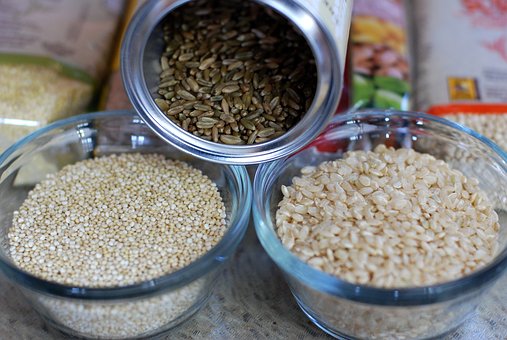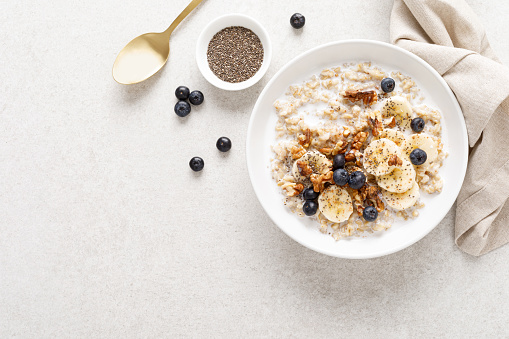Pregnancy is a crucial time for both the mother and the developing baby. Emerging research suggests that probiotics may play a role in supporting a healthy pregnancy and baby by improving gut health and reducing the risk of certain health issues. Probiotics can help to support the immune system, improve gut health, and reduce inflammation. In this blog, we’ll explore the potential benefits of probiotics for pregnancy and how you can incorporate them into your diet.
Understanding Pregnancy and the Gut Microbiome
During pregnancy, the gut microbiome undergoes significant changes that can impact both the mother and the developing baby. Changes in the gut microbiome can contribute to a variety of health issues, including gestational diabetes, preterm labor, and low birth weight.
How Probiotics Can Help
Probiotics can provide numerous benefits for pregnancy and the developing baby, including supporting the immune system, improving gut health, and reducing inflammation. Here are a few of the ways that probiotics may help:
Supporting the Immune System
Probiotics can help to support the immune system by promoting the growth of beneficial bacteria in the gut. A stronger immune system can help to reduce the risk of infections and other health issues during pregnancy.
Improving Gut Health
Probiotics can help to improve gut health by promoting the growth of beneficial bacteria in the gut. This can lead to better digestion and absorption of nutrients, which can impact the health of both the mother and the developing baby.
Reducing Inflammation
Probiotics can help to reduce inflammation in the gut, which can contribute to better health and reduce the risk of certain health issues during pregnancy.
The Best Probiotics for Pregnancy
Not all probiotics are created equal when it comes to pregnancy. Here are a few of the best probiotics for promoting a healthy gut microbiome and supporting pregnancy:
Lactobacillus acidophilus
Lactobacillus acidophilus is a probiotic that can help to improve gut health and reduce inflammation, making it an effective supplement for pregnancy.
Bifidobacterium bifidum
Bifidobacterium bifidum is a probiotic that can help to improve gut function, reduce inflammation, and support the immune system, making it an effective supplement for pregnancy.
Lactobacillus rhamnosus
Lactobacillus rhamnosus is a probiotic that can help to improve gut health and reduce the risk of preterm labor, making it an effective supplement for pregnancy.
Tips for Incorporating Probiotics into Your Diet During Pregnancy
Here are a few tips for incorporating probiotics into your diet during pregnancy:
Eat Probiotic-Rich Foods
Probiotic-rich foods are an excellent source of beneficial bacteria. Some of the best options include yogurt, kefir, sauerkraut, kimchi, and kombucha.
Take a Probiotic Supplement
If you’re unable to get enough probiotics from your diet, consider taking a probiotic supplement. There are many different types of probiotic supplements available, so be sure to choose one that’s right for you.
Talk to Your Healthcare Provider
It’s important to talk to your healthcare provider before taking any supplements during pregnancy, including probiotics. They can help you choose a probiotic supplement that’s safe and appropriate for you and your developing baby.
Conclusion
Pregnancy is a crucial time for both the mother and the developing baby. Probiotics can play a significant role in supporting a healthy pregnancy and baby by improving gut health, supporting the immune system, and reducing inflammation. By incorporating probiotics into your diet, you can support a healthy gut microbiome and improve the overall health of both you and your developing baby. It’s important to choose an appropriate probiotic supplement or probiotic-rich food that contains the specific strains of bacteria that have been shown to provide benefits during pregnancy. By working with your healthcare provider, you can develop a probiotic plan that’s tailored to your individual needs and goals.
Help me write a blog using this title: “Probiotics for Men’s Health: Improving Prostate Health and Sexual Function” This blog should be about 1400 words. Do not use the original title as the final title, just generate your vivid one. Show me in markdown style
Gut Health for Better Men’s Health: How Probiotics Can Improve Prostate Health and Sexual Function
Prostate health and sexual function are important aspects of men’s health that can be impacted by gut health. Emerging research suggests that probiotics may play a role in improving prostate health and sexual function by promoting a healthy gut microbiome and reducing inflammation. Probiotics can help to support the immune system, improve gut health, and reduce the risk of prostate-related health issues. In this blog, we’ll explore the potential benefits of probiotics for men’s health and how you can incorporate them into your diet.
Understanding Men’s Health and the Gut Microbiome
The gut microbiome plays a crucial role in men’s health, including prostate health and sexual function. Changes in the gut microbiome can contribute to inflammation and a range of health issues, including prostate-related health issues and sexual dysfunction.
How Probiotics Can Help
Probiotics can provide numerous benefits for men’s health, including supporting the immune system, improving gut health, and reducing inflammation. Here are a few of the ways that probiotics may help:
Supporting the Immune System
Probiotics can help to support the immune system by promoting the growth of beneficial bacteria in the gut. A stronger immune system can help to reduce the risk of infections and other health issues that can impact prostate health and sexual function.
Improving Gut Health
Probiotics can help to improve gut health by promoting the growth of beneficial bacteria in the gut. This can lead to better digestion and absorption of nutrients, which can impact overall health and well-being.
Reducing Inflammation
Probiotics can help to reduce inflammation in the gut, which can contribute to better prostate health and sexual function. Chronic inflammation can contribute to a variety of health issues, including prostate-related health issues and sexual dysfunction.
The Best Probiotics for Men’s Health
Not all probiotics are created equal when it comes to men’s health. Here are a few of the best probiotics for promoting a healthy gut microbiome and supporting prostate health and sexual function:
Lactobacillus acidophilus
Lactobacillus acidophilus is a probiotic that can help to improve gut health and reduce inflammation, making it an effective supplement for men’s health.
Bifidobacterium bifidum
Bifidobacterium bifidum is a probiotic that can help to improve gut function, reduce inflammation, and support the immune system, making it an effective supplement for men’s health.
Lactobacillus reuteri
Lactobacillus reuteri is a probiotic that can help to improve prostate health and reduce inflammation, making it an effective supplement for men’s health.
Tips for Incorporating Probiotics into Your Diet
Here are a few tips for incorporating probiotics into your diet to support men’s health:
Eat Probiotic-Rich Foods
Probiotic-rich foods are an excellent source of beneficial bacteria. Some of the best options include yogurt, kefir, sauerkraut, kimchi, and kombucha.
Take a Probiotic Supplement
If you’re unable to get enough probiotics from your diet, consider taking a probiotic supplement. There are many different types of probiotic supplements available, so be sure to choose one that’s right for you.
Combine Probiotics with Prebiotics
Prebiotics are a type of fiber that feed the beneficial bacteria in the gut. Combining probiotics with prebiotics can help to promote the growth of beneficial bacteria and improve overall gut health.
Conclusion
Prostate health and sexual function are important aspects of men’s health that can be impacted by gut health. Probiotics can play a significant role in improving prostate health and sexual function by promoting a healthy gut microbiome, reducing inflammation, and supporting the immune system. By incorporating probiotics into your diet, you can support a healthy gut microbiome and improve your overall well-being. It’s important to choose an appropriate probiotic supplement or probiotic-rich food that contains the specific strains of bacteria that have been shown to provide benefits for men’s health. By working with a healthcare professional or registered dietitian, you can develop a probiotic plan that’s tailored to your individual needs and goals.
Help me write a blog using this title: “Probiotics for Travel: Keeping Your Gut Healthy on the Go” This blog should be about 1400 words. Do not use the original title as the final title, just generate your vivid one. Show me in markdown style
Travel Smart: How Probiotics Can Help Keep Your Gut Healthy
Traveling can be a fun and exciting experience, but it can also take a toll on your gut health. Changes in diet, water, and routine can disrupt the balance of bacteria in your gut, leading to a range of digestive issues. Emerging research suggests that probiotics may play a role in keeping your gut healthy while on the go. Probiotics can help to support the immune system, improve gut health, and reduce the risk of digestive issues. In this blog, we’ll explore the potential benefits of probiotics for travel and how you can incorporate them into your routine.
Understanding Gut Health and Travel
Traveling can disrupt the balance of bacteria in your gut, leading to digestive issues such as diarrhea, constipation, and indigestion. Changes in diet, water, and routine can all contribute to these issues, making it important to take steps to support your gut health while on the go.
How Probiotics Can Help
Probiotics can provide numerous benefits for gut health while traveling, including supporting the immune system, improving gut health, and reducing the risk of digestive issues. Here are a few of the ways that probiotics may help:
Supporting the Immune System
Probiotics can help to support the immune system by promoting the growth of beneficial bacteria in the gut. A stronger immune system can help to reduce the risk of infections and other health issues while traveling.
Improving Gut Health
Probiotics can help to improve gut health by promoting the growth of beneficial bacteria in the gut. This can lead to better digestion and absorption of nutrients, which can impact overall well-being while traveling.
Reducing the Risk of Digestive Issues
Probiotics can help to reduce the risk of digestive issues such as diarrhea, constipation, and indigestion while traveling. By maintaining a healthy balance of bacteria in the gut, probiotics can help to support digestive health and reduce the risk of these issues.
The Best Probiotics for Travel
Not all probiotics are created equal when it comes to travel. Here are a few of the best probiotics for promoting a healthy gut microbiome and reducing the risk of digestive issues while on the go:
Lactobacillus acidophilus
Lactobacillus acidophilus is a probiotic that can help to improve gut health and reduce the risk of digestive issues, making it an effective supplement for travel.
Bifidobacterium bifidum
Bifidobacterium bifidum is a probiotic that can help to improve gut function, reduce inflammation, and support the immune system, making it an effective supplement for travel.
Saccharomyces boulardii
Saccharomyces boulardii is a probiotic yeast that can help to reduce the risk of diarrhea and other digestive issues while traveling.
Tips for Incorporating Probiotics into Your Travel Routine
Here are a few tips for incorporating probiotics into your travel routine to support gut health:
Pack Probiotic Supplements
Consider packing a probiotic supplement to take while traveling. Choose a probiotic supplement that’s right for you and your travel needs. It’s important to choose a shelf-stable probiotic supplement that doesn’t require refrigeration, making it easy to take on the go.
Eat Probiotic-Rich Foods
Probiotic-rich foods are an excellent source of beneficial bacteria. Some of the best options include yogurt, kefir, sauerkraut, kimchi, and kombucha. Look for these foods while traveling to help support gut health.
Practice Good Hygiene
Wash your hands frequently to reduce the risk of infections while traveling. Good hygiene practices can help to reduce the risk of digestive issues and support a healthy gut microbiome.
Conclusion
Traveling can be an exciting experience, but it can also take a toll on your gut health. Probiotics can play a significant role in supporting gut health while on the go by promoting a healthy gut microbiome, reducing inflammation, and supporting the immune system. By incorporating probiotics into your travel routine through supplements and probiotic-rich foods, you can support a healthy gut microbiome and reduce the risk of digestive issues. It’s important to choose an appropriate probiotic supplement or probiotic-rich food that contains the specific strains of bacteria that have been shown to provide benefits for travel. By working with a healthcare professional or registered dietitian, you can develop a probiotic plan that’s tailored to your individual needs and travel goals.







